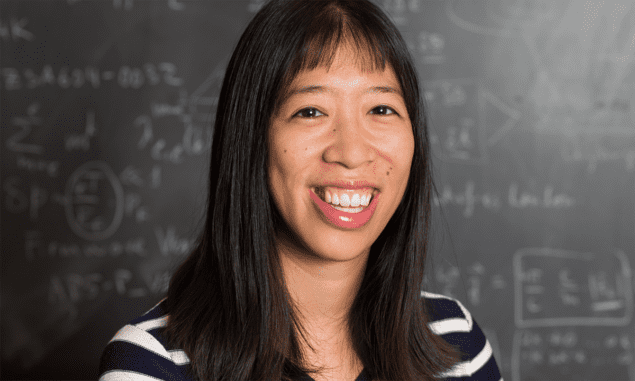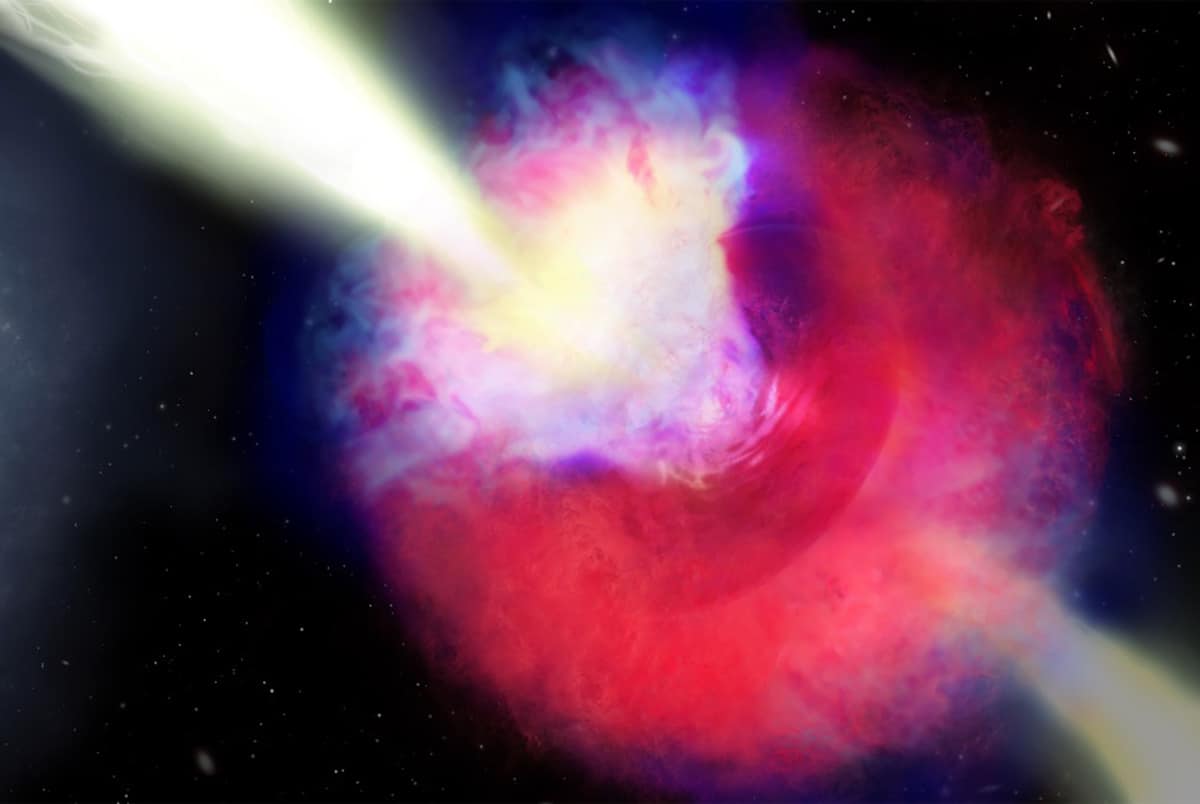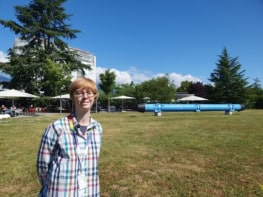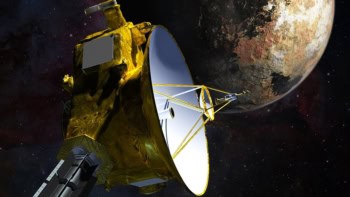Wen-fai Fong, assistant professor in physics and astronomy and head of Northwestern University’s Fong group, talks to Rob Lea about her journey into physics and mentoring the scientists of the future during one of astronomy’s most exciting eras

“It’s very cliché, but I was never really interested in astronomy in particular until I was forced to look up at the sky in the 8th grade,” says astronomer Wen-fai Fong. “I was given a project to chart the phases of the Moon, so I had to stand out on my driveway and just look up at the sky every night.” Today, she is an assistant professor of physics and astronomy who leads a pioneering group of space scientists at Northwestern University in the US.
Fong’s team studies some of the universe’s most extreme and violent events including gravitational waves that are launched when neutron stars and black holes merge, and gamma-ray bursts – the most powerful cosmic explosions since the Big Bang with sources that until recently were shrouded in mystery. In addition to this, she also oversees something much more delicate – the fledgling careers of the next generation of astronomers during this unique and exciting time in the field.
Fong, who grew up in a suburb outside of Rochester, New York, hadn’t really considered the stars until her high school project drawing the Moon, but seeing it change kick-started her interest in astronomy and physics. She explains that while she was inspired by her family – her father and older sisters work in medicine – none of them had much experience with physics. This meant that despite an early interest in mathematics, physics remained intimidating until a summer camp changed her perspective.
The summer camp showed me that other girls were interested in physics
“I went to a summer camp at the local university for girls who are interested in physics, and that was really a formative experience for me,” says Fong. “It was led by female physics graduate students and that also gave me automatic role models in the field. The summer camp showed me that other girls were interested in physics.”
Before leaving high school to take up dual bachelor’s degrees in physics and biology at the Massachusetts Institute of Technology (MIT), Fong began asking local physics professors if she could shadow them in their labs. This led to her meeting Judy Pipher, a professor of physics and astronomy who taught at the University of Rochester from 1971 to 2002. Pipher, who passed away in February 2021, would become a major influence on Fong.
“She welcomed me into her lab, and met with me one on one,” Fong recalls. “I think just having an older female role model was really important as it solidified that a career in physics is possible for someone like me.”
Following this, she worked with professor of astrophysics Edo Berger on observations of gamma-ray bursts, a phenomenon that remains intrinsic to her career to this day. After winning an Einstein Postdoctoral Fellowship in 2014 and moving to the University of Arizona’s Steward Observatory, Fong was awarded a Hubble Postdoctoral Fellowship in 2017, which led to her joining Northwestern’s physics and astronomy faculty a year later. At this time Fong also affiliated herself with Northwestern’s Center for Interdisciplinary Exploration and Research in Astrophysics (CIERA), becoming an important part of the CIERA team.
It was at Northwestern that she would form her own research group, mentoring gifted space-science students. Indeed, the Fong group quickly became an impressive force in space-science research; as well as becoming the antithesis of the gender imbalance Fong saw during her education, with mainly female researchers making up its members.
Hopefully it is empowering for these women to see that their peers as well as their mentors are similar to them
“Women are still underrepresented in physics but I never fixate on that. I always tell my students, ‘You’ve gotten here, focus on the science’ and advise them not to let the stereotypical bias of physics affect them too much,” says Fong. “Hopefully though it is empowering for these women to see that their peers as well as their mentors are similar to them.”
Fast phenomena
The broad aim of the group is to study powerful events and phenomena that aren’t replicated here on Earth or even within the solar system. “I am interested in uncovering the origins of the fastest explosions in the universe, or fastest transients,” Fong explains. “We have these explosions like gamma-ray bursts and fast radio bursts which we see but we don’t know what causes them.” She adds that understanding the cause of these phenomena is vital to progressing physics, as well as offering unique research opportunities. “When we have a handle on what actually causes them, we can use these rare explosive events as a way to understand physics that we can’t see elsewhere in the universe,” Fong continues.

One significant finding recently delivered by the group is helping change how we think about these short-lived, or transient, events. At the end of 2022, Northwestern PhD student and Fong group member Jillian Rastinejadi led the team to detect a long gamma-ray burst – dubbed GRB 211211A – associated with the merger of two neutron stars (Nature 612 223). This is extraordinary because long gamma-ray bursts have always been associated with the collapse of massive stars, and the merger of neutron stars had been ruled out as the cause of these events until now.
The research also exemplifies what drives Fong to keep studying gamma-ray bursts, whether long or short-lived – the element of surprise. “The really fun part about gamma-ray bursts is every time I think ‘Oh, we know about gamma-ray bursts, we understand them’ one comes along that totally, totally throws us for a loop,” Fong explains.
The Northwestern assistant professor highlights the work of another PhD student in her group, astronomer Anya Nugent, who led a project to create a colossal catalogue of galaxies observed by ground and space-based telescopes to host short gamma-ray bursts (ApJ 940 56). “I’m really proud of that, because it took years and years of work to build a gold-standard fast-radio-burst catalogue,” Fong says.
Shaping the future of astronomy
Aside from studying some of these fascinating events, Fong has another equally crucial role within her astronomy group at Northwestern – mentoring the next generation of astronomers. “I think every student is different and it’s important to kind of cater your mentoring style accordingly. A good mentor can really alter someone’s career path,” Fong says. “By getting this far and winning a spot in a prestigious PhD programme, they’ve shown that they’re really interested in astronomy as a career path. So, my role is to help shepherd them and facilitate that interest.”
A good mentor can really alter someone’s career path
Fong’s own experiences as a graduate student help her adjust her mentoring role. This can come in the form of something as simple as reminding her that the mere presence of a mentor can positively impact the work being undertaken by a student or postdoc. Fong also has experience dealing with imposter syndrome, particularly when moving from one stage of her career to another, which can lead to feelings of inadequacy. She advises her students to form allegiances with each other for further support.
Fong acknowledges that there are some challenges faced by her team that she did not experience in the formative years of her career, particularly the COVID pandemic that caused isolation and frustratingly slowed research. This has taught her the value of empathy in her mentoring role, something that also helps mitigate the high-pressure nature of astronomy arising from how fast paced the field can be. She is also keen to lead by example. As the type of astronomy the team performs is time variable, it means there are lots of late nights and “after-hours” observations – something she pitches in with, even while raising a nine-month-old child.
The Northwestern researcher is clear, however, that leading the Fong group isn’t a one-way street. Fong says she benefits as much from her charges as the group’s students and postdocs do from her experience. “I see a piece of myself in every student that I’ve mentored, and we motivate each other. I’ve learned so much from them. It’s really important to keep that mindset in academia,” Fong concludes. “I hope that when I’m 60 years old and on the brink of retirement, I still keep that mentality that allows me to always be learning from the youngest members of the group.”



